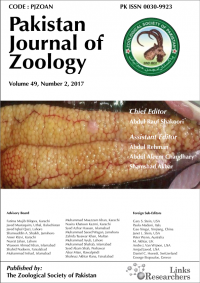This case control study was aimed to determine the role of rs8177400 polymorphism in TIR-domain-containing-adaptor-protein gene in malaria susceptibility and clinical outcomes upon P. falciparum and P. vivax exposure. Blood samples of 228 malaria patients and 226 healthy controls were selected from the local population. Malarial samples were divided in to complicated malaria (N=89) and mild malaria (N=139) groups according to WHO criteria. Malarial groups were further divided into P. vivax and P. falciparum groups based on the Plasmodium species responsible for the infection. Allele specific PCR was employed for the amplification of rs8177400 polymorphism. Results of genotyping were confirmed via PCR-RFLP strategy. Presence of GG genotype decreases the susceptibility of malaria (OR: 0.544, CI: 0.331 to 0.894, p=0.053), mild malaria (OR: 0.472, CI: 0.274 to 0.815, p=0.024) and P. vivax infection (OR: 0.362, CI: 0.211 to 0.622, p=0.000). AG heterozygosity increased the susceptibility of malaria (OR: 1.835, CI: 1.117 to 3.013, p=0.053), mild malaria (OR: 2.115, CI: 1.226 to 3.649, p=0.024) and P. vivax infection (OR: 2.758, CI: 1.607 to 4.732, p=0.000). GG genotype decreased the risk of mild malaria due to P. vivax infection (OR: 0.312, 95% CI: 0.170 to 0.572, p=0.000). AG genotype increased the chances of mild malaria due to P. vivax infection (OR: 3.205, 95% CI: 1.747 to 5.878, p=0.000). P. vivax infection may develop mild malaria symptoms in AG carriers of rs8177400 polymorphism in the Pakistani population.










